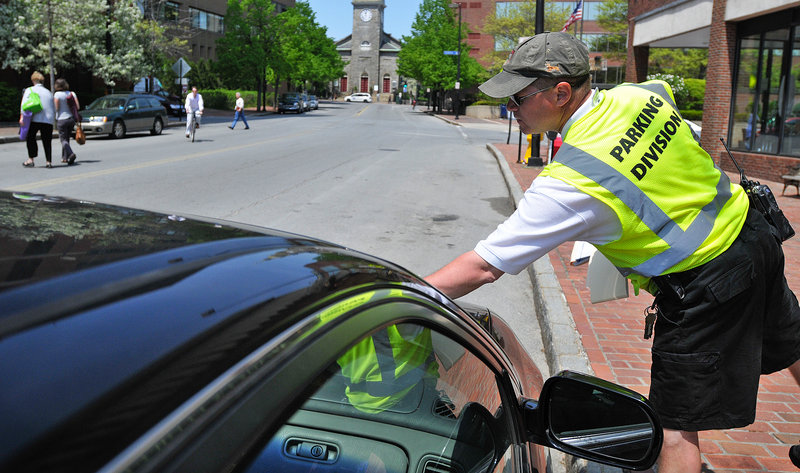No one wants a parking ticket, but when the alternative is laying off 10 city workers, most people will be willing to pay up now and then.
That was the choice the Portland City Council faced last year when it voted for a budget that eliminated a popular ticket-forgiveness program giving every driver in the city, whether resident or visitor, a free pass on one expired meter violation every six months.
The decision came in the middle of a tough city budget process during which wages were frozen, positions eliminated and a wide range of city services cut. At the time, there were two major concerns.
One was whether getting rid of the free ticket would really bring in the $500,000 that was anticipated to keep the budget in balance.
The other was whether shoppers and diners would get so irritated by parking tickets that they would stop coming to Portland.
While there are no definitive answers to either question, there is evidence to say things have worked out as the city had hoped on both issues.
Parking revenue for the past 11 months is about $500,000 ahead of the previous year, and even if that is not entirely due to the end of the ticket forgiveness program, most of it probably is. As for the second concern, the sight of Portland’s busy shops and restaurants suggests that people have come to terms with the idea that the meters mean what they say.
This successful transition suggests there is still a lot more that can be done to manage people and their cars when they come into the city, including some that are already in place but not well-known.
Downtown businesses, which had the most to lose from an anti-Portland backlash by ticketed drivers, have for years funded a program that gives their customers two hours of free parking in city-owned garages. The businesses that participate in the program could do more to tell people as they drive into Portland that their best bet for an affordable parking space may be in a garage.
Another may be the parking tickets themselves, which are unpopular but serve an important function besides bringing in revenue. A parking spot in a busy urban area during business hours is a precious commodity, and knowing that a ticket may be coming should remind people that they will have to pay if they don’t move their vehicles.
Keeping them moving is the best way to ensure an ample supply of convenient parking spaces.
Send questions/comments to the editors.



Success. Please wait for the page to reload. If the page does not reload within 5 seconds, please refresh the page.
Enter your email and password to access comments.
Hi, to comment on stories you must . This profile is in addition to your subscription and website login.
Already have a commenting profile? .
Invalid username/password.
Please check your email to confirm and complete your registration.
Only subscribers are eligible to post comments. Please subscribe or login first for digital access. Here’s why.
Use the form below to reset your password. When you've submitted your account email, we will send an email with a reset code.